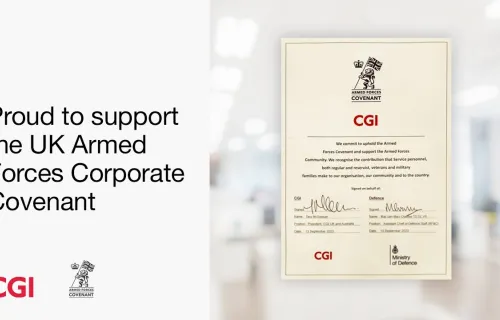Providing timely, relevant information to large numbers of people is an extremely complex challenge, but it’s one which fundamentally underpins military activities.
The Challenge
From a Defence perspective, there are four areas of concern:
- Complex procurement. Does the Ministry of Defence’s (MOD) massive investment over long timeframes in Information and Communication Technology deliver the information that is needed?
- Inflexible systems. Can the MOD procure information in a more pragmatic, agile, way to take advantage of civil ways of working?
- Information deluge. How can information become an enabler - avoiding swamping the user, but delivering the right piece when needed to perform the day job?
- Rising expectations. Why should the civil smartphone and apps revolution, with its expectation of tailored information delivery when needed, disappear when military personnel put on a uniform?
Defence and defence procurement are currently transforming. There is now an opportunity to tackle these challenges. MOD and industry must work together to create a new approach to information provision.
Our Approach
We welcome the recent MOD publications in this area, most notably the MOD’s Information Strategy (MODIS) which emphasizes the importance of information. We believe that in delivering this strategy MOD personnel have an opportunity to address the concerns above. By defining its information needs MOD can enable industry to deliver in a service based commercial environment that can exploit best practice from emerging technology and other markets. This is what we mean by Information Enabled Capability (IEC) – a world where MOD focuses on the information content required to support the end capability, and is less distracted by specifying the systems or infrastructure that are used to provide it.
Analogies from everyday life offer great insight. Consider financial traders. Do they dictate database design to Reuters or Bloomberg? Military users should be able to access information feeds in the same way, unconcerned with the workings behind the scenes.
Or smartphone apps. These take the effort out of finding what is needed by only providing tailored, relevant information. A military app store would help the military end-users as well as allowing industry to compete in a much more dynamic environment. A ‘survival of the fittest’ principle could be introduced, where apps live or die by their success. Those that are not utilised are discarded.
IEC Benefits For:
- Defence: Improve operational effectiveness and efficiency with this force multiplier
- End-users: Get the information you need when you need it, with the flexibility to meet your changing needs
- Procurement and Finance: Acquire agile, competitive, pay-asyou-go information for reduced upfront investment. Introduce shorter procurement cycles that allow you to keep up with technology




